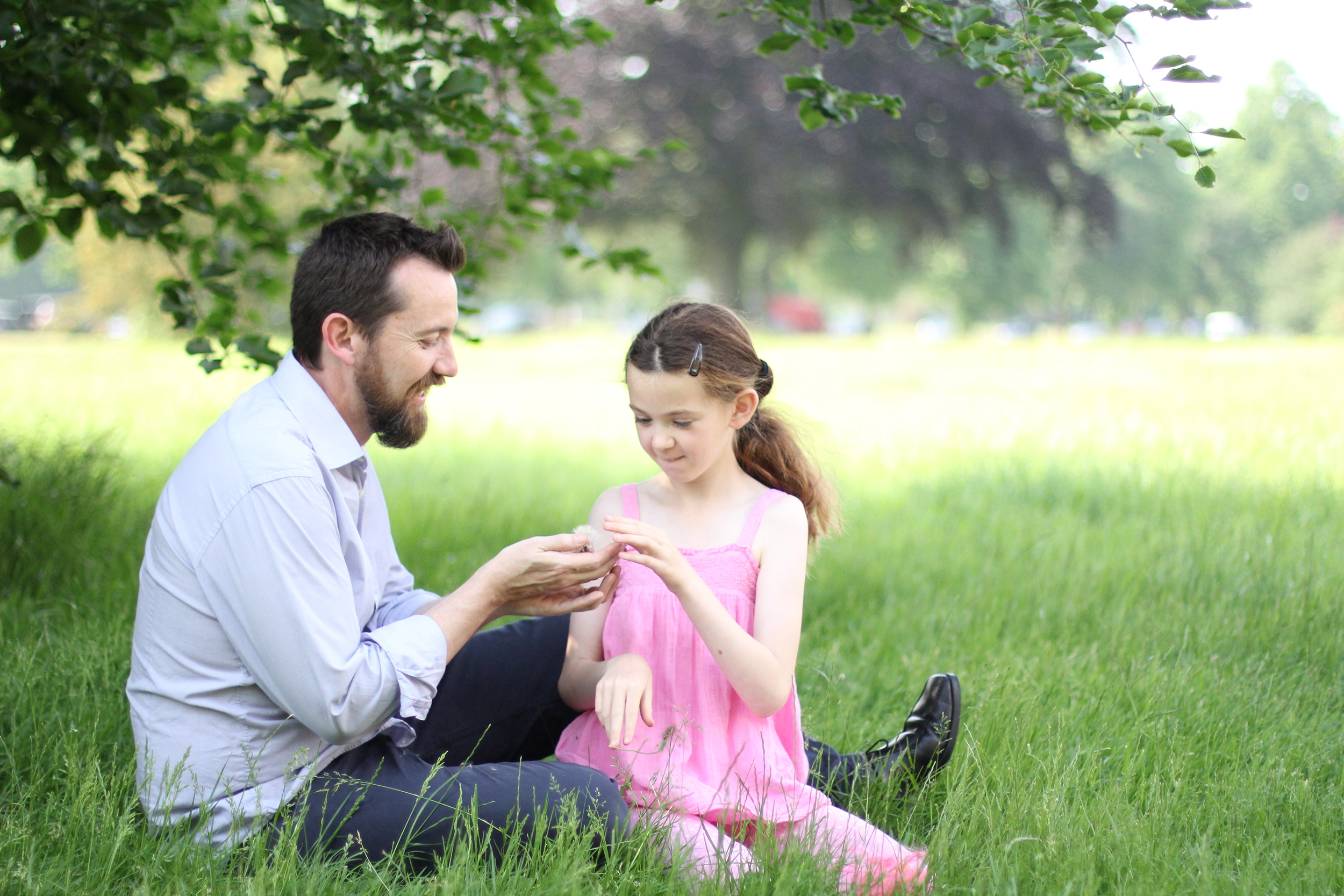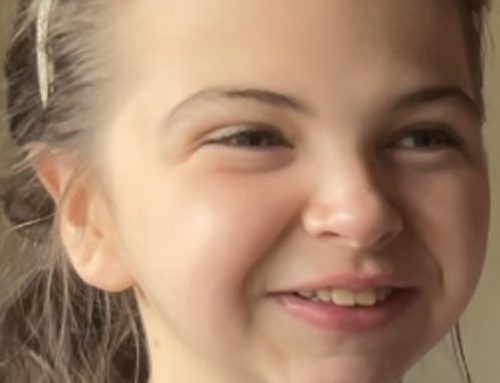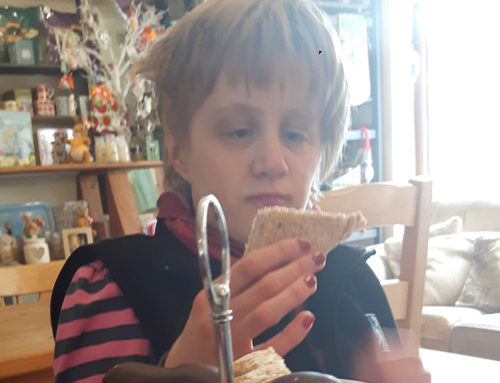Alex
Our daughter is naturally sunny, bright and cheeky with a great sense of humour. She loves books and stories (listening to them and creating them using small world characters and her imagination), watching dvds, swimming, dancing, singing, bouncing on her trampoline, painting and drawing.

When Alex is happy she is very chatty but quiet when overwhelmed. At school she likes English and PE. She does not like maths! At primary level she attended a mainstream primary school with full time 1:1 but has now transferred to a special school for her secondary education.
Some of our daughter’s symptoms include: – intellectual disability and global developmental delay; problems with fine and gross motor skills; problems with speech and language; sensory processing disorder (sensory seeking but also sensory sensitive to aural or visual stimulation); problems with proprioception (joint and muscle sense – knowing where her body is in space) and self regulation; problems with visual tracking due to a cerebral visual impairment; memory problems and autistic type traits in both her behaviour and communication difficulties.
All this may sound terribly debilitating but our daughter is on the milder end of the spectrum for DDX3X. Though she has difficulties with speech, language and communication and movement she is verbal and can walk. Occasionally she amazes us with her understanding of language. When asked to describe a recent sports event at school she said that her friend ‘ran like a lightning bolt’. On the other side of the coin her speech can be ‘blurry’ and difficult to understand at times.
Therapy wise I would say that Occupational therapy has had the most profound effect on our daughter’s quality of life. Her ‘sensory diet’ can wake up or calm down her senses enabling her to concentrate better at school. Alex has had involvement with many services from the age of 2 when I queried that she wasn’t talking yet with our GP. They include paediatricians, portage, speech and language therapists, occupational therapists, physiotherapists, ophthalmologists, the orthotics service, community disability nursing service and educational psychologists.
My advice to any parents would be to become well informed about your child’s condition, keep fighting and never give up and also to make contact with other parents whose children have special needs. Their support, advice and understanding will be invaluable to you as time goes on.




